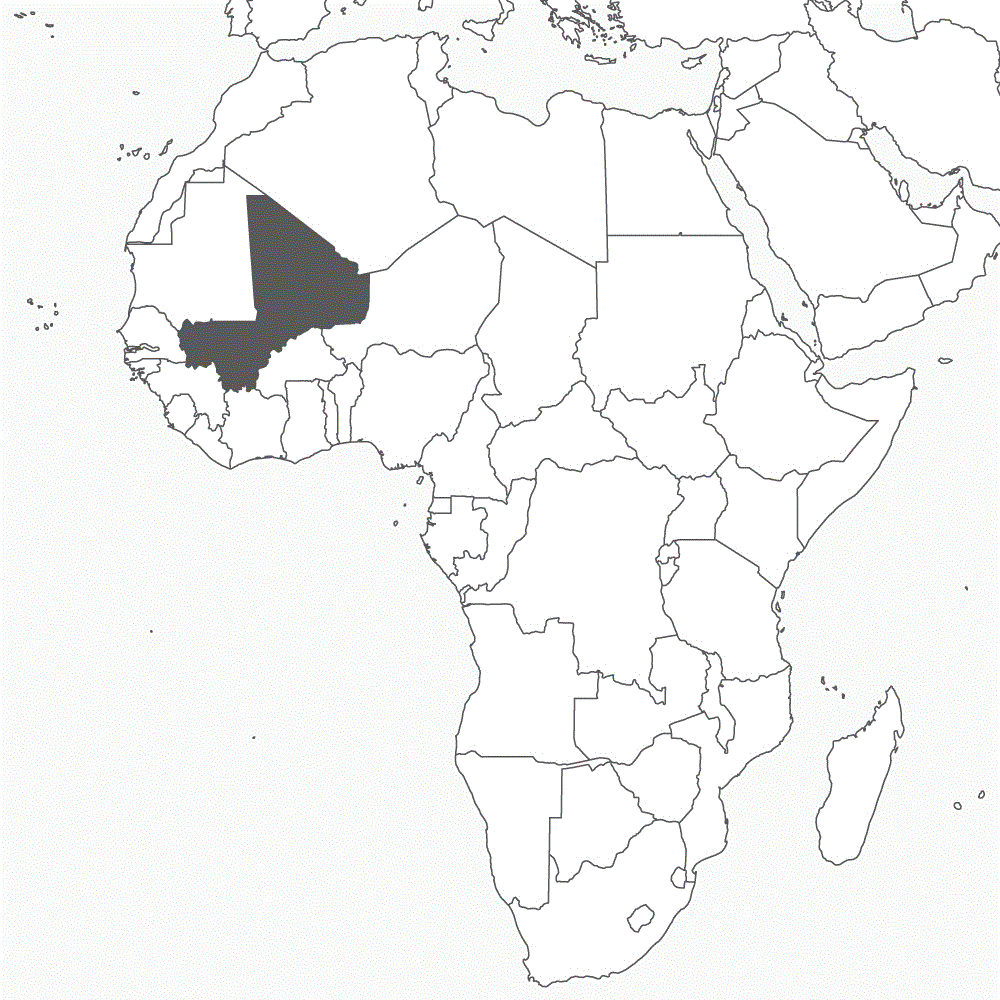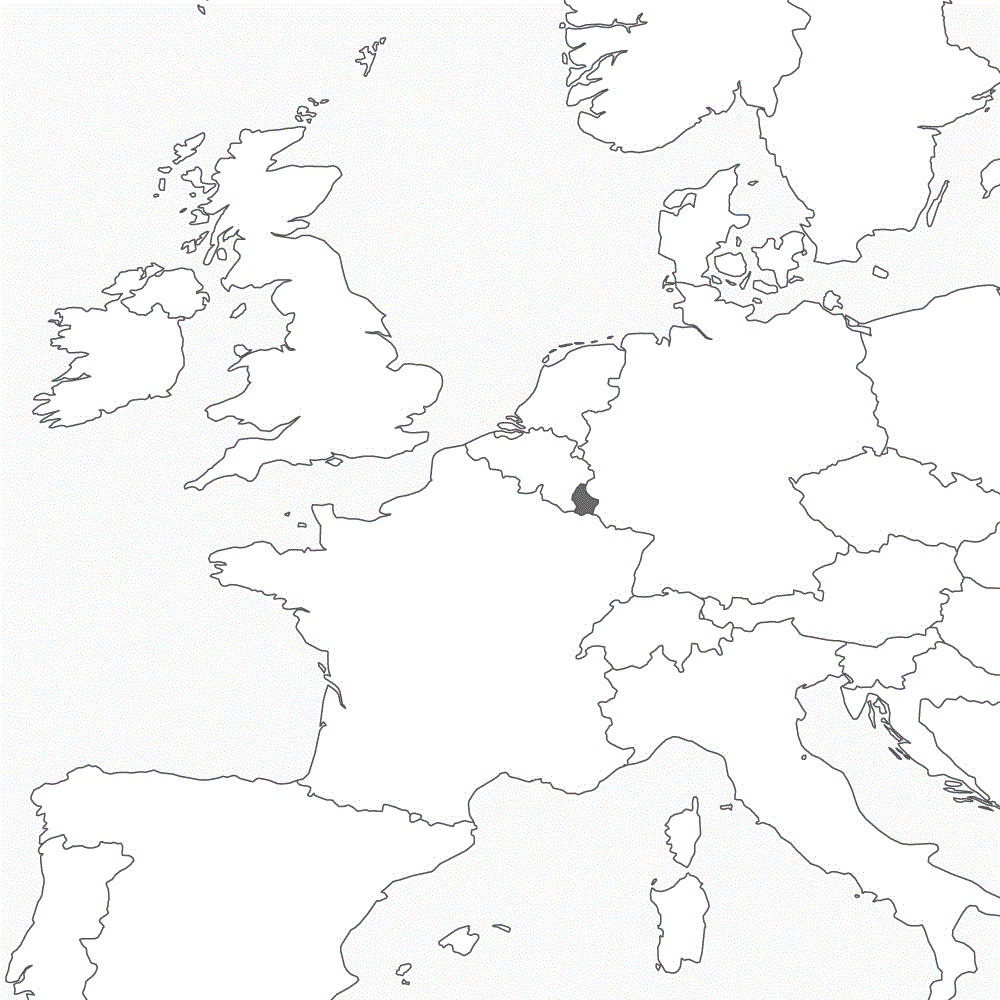More Military for the Sahel (II)
German Bundestag decides today on Mali troop deployment expansion. Experts criticize continued militarization of Sahel conflicts.
BERLIN/BAMAKO/OUAGADOUGOU (Own report) - With today's decision to extend and expand the Bundeswehr's deployment in Mali, Berlin is once again boosting the region's militarization. The attempt to defeat Sahel insurgents and jihadis by force has been a failure since troops from Germany and other European countries began their mission in Mali in 2013. Since then, the war has been spreading because of socio-economic conflicts - first in Central Mali, then in Burkina Faso at Mali's southeastern border. Instead of taking preventive action with resolute economic support, Germany and other EU powers have continued to militarize the conflict. This has simply made matters worse, and only helped push the region closer to the brink of the abyss, experts note in view of developments leading to a growing number of ethnically motivated massacres in several Sahel countries. It was a European war, in the first place, that lit the spark to armed conflict in Mali. Read more
Wrecking Arms Control
Berlin blames Russia for US withdrawal from the Open Skies Treaty and rejects own disarmament initiatives.
BERLIN/WASHINGTON (Own report) - German Foreign Minister Heiko Maas expressed his "regrets" at the US withdrawal from the Open Skies Treaty while explicitly refusing to make its own disarmament initiatives. Last week, the Trump administration announced its intention to withdraw from the Open Skies Treaty, an important arms control mechanism. As usual, Washington blames Russia for its move. The German foreign ministry follows suit. These allegations, however, have no "factual basis," according to an expert at the German Institute for International and Security Affairs (SWP) in Berlin. The US government threatens to go even a step further and not only withdraw from the next arms control treaty - the "New Start" agreement - but also to break the globally respected moratorium on nuclear testing. Meanwhile, the German government rejects demands that Germany should renounce "nuclear sharing" as its own contribution toward disarmament. This is not an option because it would be "convenient for Russia", according to the justifications in commentaries. Read more
The Cost of Integration
Franco-German EU "Recovery Fund" agreement under criticism. German business circles urge stabilization of the Union.
BERLIN/PARIS/ROME (Own report) - The Franco-German agreement on the EU's "Recovery Fund" to strengthen the economy in the Corona crisis is being met with criticism from two sides. Whereas several EU net contributors are unwilling to accept the allocation of payments from the fund as grants to those countries hardest hit by the pandemic; Italian Prime Minister Giuseppe Conte points out that the proposed payments are most likely not enough to help Italy to overcome the crisis. German Chancellor Angela Merkel reduced French President Emmanuel Macron's proposed amount of resources in the fund, from his €1.5 trillion, down to €500 billion. Observers consider that allocating the resources as grants is almost without alternative given Berlin's refusal to agree to issue "Corona bonds" and the German Constitutional Court's ruling on the ECB. Influential German business circles warn that Germany and the EU could lag behind China and the USA, if the EU is not quickly stabilized. Read more
The Costs of Economic Warfare
Controversy over Huawei continues in Berlin while Washington is launching a devastating blow at the Chinese company.
BERLIN/WASHINGTON (Own report) - In the wake of the most recent US devastating blow launched at Huawei, demands are again being raised in Berlin to exclude the Chinese company from setting up Germany's 5G networks. Huawei should not have an opportunity in Germany, insists Norbert Röttgen, Chairman of the Foreign Affairs Committee in the German Bundestag. The government's current draft for a revised version of the IT security law, in principle, does not exclude the participation of Chinese companies but includes an ambiguous clause ("trustworthiness test") that could be applied against them. While the discussion is continuing in Berlin, the Trump administration announced that, in the future, chip manufacturers anywhere in the world, using specialized US equipment must obtain a special US government license to supply Huawei. Experts estimate that should this directive be implemented - which would subjugate key sectors of the world's economy to US control - nearly 90 percent of Huawei sales would be threatened. Subsequently, German companies would also suffer damages. Read more
The "Politics of Generosity"
Countering China's influence in South Eastern Europe, EU demands "public acknowledgement" of its assistance in combating the pandemic.
BERLIN/BELGRADE (Own report) - The Western Balkan states, including Serbia, should publicly acknowledge the EU's support in combating the Covid-19 pandemic, the EU demands in the final declaration at its Zagreb Western Balkan Summit last Wednesday. The summit had been preceded by harsh criticism of Chinese aid deliveries to Serbia, which have aroused strong resentment in Berlin and Brussels. EU Foreign Affairs Commissioner Josep Borrell accused Beijing of waging "a struggle for influence" with its "politics of generosity." The EU's Foreign affairs Commissioner Josep Borrell had accused Beijing of its "struggle for influence" with "politics of generosity." For years, Germany and the EU have been trying to counter the growing influence of other powers in the Southeastern European non-EU countries. This pertains to the Turkish, Russian and Chinese cultural and military policies and their economic activities. The EU dominance over the Western Balkan countries' economy has only drained these countries of billions of euros and rendered their recovery impossible. This is why they are turning also to China. Read more
Permanent Damage (I)
Protests in France and Luxembourg against the closure of German borders, harassment by German federal police and anti-French chauvinism.
BERLIN/PARIS/LUXEMBOURG (Own report) - Over the weekend, hundreds of French and Luxembourgian citizens have protested the ongoing closure of German borders. On March 16, the German government unilaterally reinstated strict border controls. Since then, German police have prevented more than 100,000 citizens of several neighboring countries from entering Germany. Berlin's measures have been causing considerable hardships also for French and Luxembourgian citizens, working in German factories and hospitals. They are also being regularly exposed to harassment by German border police and to a resurgence of old anti-French chauvinism in Germany. French commuters are increasingly being treated as "second-class EU citizens," notes a French senator. The former EU Commission President Jean-Claude Juncker had warned that "Germany will cause permanent damage with the way it is treating some of its neighbors." Germany's crisis policy is also provoking protests in Southern and Eastern Europe. Read more
Those Who Have, Shall be Given
Corona crisis and corona relief measures reinforce inequality and the north-south divide within the EU. Germany consolidates its hegemony.
BERLIN (Own report) - Foreign policy experts in Germany and the EU's Foreign Affairs Commissioner Josep Borrell are warning that Brussels' corona relief measures could widen the EU's economic gap. So far, the EU's reaction to the Corona crisis has led to companies in economically stronger countries receiving more relief assistance than their competitors in more heavily indebted countries, according to a proximate analysis by the German Council on Foreign Relations (DGAP). After the crisis, German companies will probably be in a stronger position than, for example, their Italian competitors. "The north-south divide that was already in place before the crisis, could become even more pronounced afterwards," Borrell predicts. The growing inequality could threaten the EU's "political project" in the foreseeable future, the DGAP writes. In the competition within the EU, German companies are benefiting from the fact that, by fostering a bottom-to-top redistribution, national corona relief measures are already to their advantage - a development that exacerbates the crisis. Read more
The Alliance Question
Transatlantic circles in Germany call for German participation in the growing US aggression against China.
BERLIN/WASHINGTON (Own report) - The United States and transatlantic oriented circles in Germany are increasing pressure on Berlin to participate in the West's "disengagement" from China. "The alliance question" is "ripe for decision," declared Mathias Döpfner, CEO of the Axel Springer SE media group. Germany must cease the "aberration" of economic cooperation with the People's Republic of China and formally position itself in opposition to Beijing. This is the result of the global shift in power that is becoming apparent through the Corona crisis. Whereas China has obviously overcome the low-point of this crisis and is already headed back to economic growth, an improvement of the situation in the USA and Europe is not yet on the horizon. Observers are speculating that the western powers' "influence and significance" will probably "continue to dwindle." Whereas Washington is mulling whether to lift China’s sovereign immunity, to permit damage lawsuits, powerful forces in the German economy are seeing their crisis exit in business with China. Read more
Germany Threatens
"We all must die:" Breakthrough for social Darwinism during the Corona Pandemic. Commentary by Rüdiger Minow
Hardly a German government representative is more notorious than Wolfgang Schäuble - worldwide. During the international financial crisis, when Schäuble was Germany's Minister of Finance, his EU counterparts trembled: Schäuble wanted to force them to adapt harsh austerity measures. Because the foreseeable social consequences would cost lives, Schäuble's tactics seemed to scare Europe with "traumatic effects" and gave it a lesson in German economic ethics: Teutonic brutality and at all costs. "Terrifying," was the assessment the US Treasury Secretary made following his conversation with Schäuble. Paris and Madrid were also apprehensive; Athens called Schäuble an "arsonist," on a rampage through Europe. Schäuble has since climbed higher on the government ladder. Schäuble now ranks second, after the President, in the Federal Republic of Germany's protocolary system. Whatever he says carries weight. And he uses this position. In the midst of the Corona crisis, Schäuble initiated an interview, considered to be an unofficial guideline for the German state's life and death decisions. Its tenor deserves attention, even beyond Germany's borders. Read more
GERMAN-FOREIGN-POLICY.com
Information on German Foreign Policy: News + Interviews + Analyses + Background


